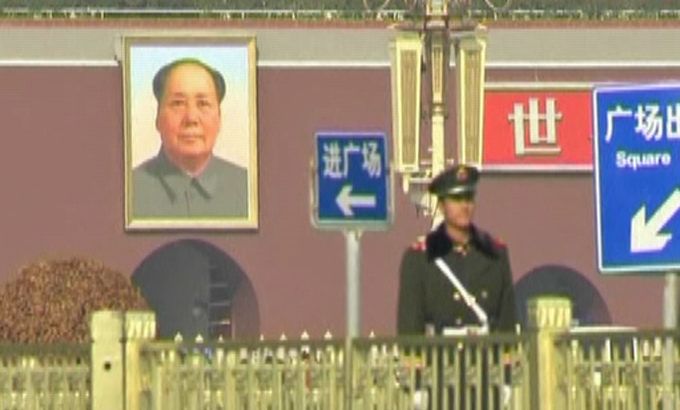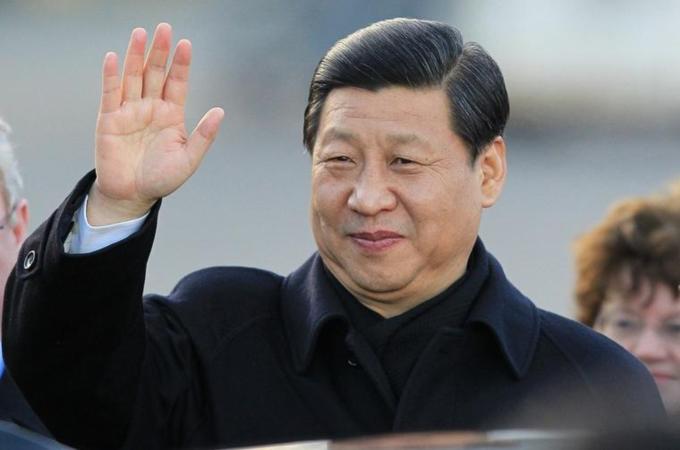Explainer: China’s National Congress
The meeting will choose the next generation of leaders at the helm of the world’s most populous nation.

China’s ruling Communist Party is holding its 18th National Congress. The meeting will choose the next generation of leaders at the helm of the world’s most populous nation for the next decade.
The National Congress is held once every five years, and 2,270 delegates from across China are gathering in the capital, Beijing.
Communist Party of China
China’s Communist Party is the world’s largest political party, with more than 80 million members.
 |
| Chinese Vice Premier Li Keqiang will most likely be elected as the next Premier [AFP] |
With its unmatched reach, the party is the most influential instrument in contemporary Chinese society. Its influence extends across cities, towns, villages, universities, schools and workplaces.
Members of the party include government officials, army officers, farmers, workers and employees of state-owned companies.
China is a one-party state, so all political participation must occur through the Chinese Communist Party. Dissent or difference of opinion can invite severe consequences.
The party has a pyramid structure, with village members at the bottom and Beijing-based decision-making bodies at the top.
Party members choose delegates to attend the National Congress.
National Congress of the Communist Party
Although the National Congress of the Communist Party meets only once every roughly five years, it chooses members for the State Council and the Politburo – the party’s two most powerful bodies – every 10 years.
Delegates attending the Congress – held in Beijing’s palatial Great Hall of the People – elect about 200 people to the party’s Central Committee, as well as about 150 alternates. The Central Committee then picks the members of the party’s Politburo and its influential Standing Committee.
The party congresses typically last between five and 10 days.
Politburo
The 25-member Politburo is China’s most important decision-making body and has the final say on all matters. The Politburo often includes party secretaries from big municipalities and provinces. Its members are elected by the Communist Party’s Central Committee.
The Politburo works by collective decision-making, but discussions are necessarily held behind closed doors.
The Chinese Communist Party requires provincial chiefs to retire when they turn 65, meaning that 14 of the Politburo’s 25 members will likely step down after the upcoming National Congress.
Politburo Standing Committee
The Standing Committee, which consists of nine members of the Politburo, meets twice a week and is the most powerful decision-making body in China.
Members of the Politburo’s Standing Committee choose among themselves who will become the party general secretary, premier, vice-premiers and chairman of the National People’s Congress. Since 1993, the party’s general secretary has also served as the president of the country.
Although the outgoing Standing Committee has nine members, the new one is likely to have seven. All but two current Standing Committee members – Xi Jinping and Li Keqiang – will have to retire due to age limits.
It is expected that Xi Jinping will be chosen as the new General Secretary of the Communist Party, the most powerful position in China. The General Secretary also usually holds the title of President.
Meanwhile, Li Keqiang is likely to become the next Premier.
State Council
The State Council oversees China’s bureaucracy, and its 35 members include the heads of government agencies such as the Ministry of Foreign Affairs and the Ministry of Justice. The Council’s most important role, however, is running and managing the state’s economy.
The Council is headed by the Premier, who is the head of government and who appoints many members of the Council. In addition to government ministers, the Council consists of four vice premiers – all of whom are currently also members of the Politburo.
Xi Jinping: Incoming President and Communist Party General Secretary
 |
| Chinese Vice President Xi Jinping is expected to replace Hu Jintao as the country’s president [AFP] |
Currently the vice president, Xi is expected to replace Hu Jintao as the party’s general secretary and the country’s president early next year.
A “princeling” son of a former party leader, Xi has been in politics from a young age. Xi is known to have strong links with the military and China’s increasingly powerful industrial class.
Xi was born in Beijing in 1953; he joined the Communist Party in 1977. Rising through the ranks, Xi was named the Shanghai party chief in 2007. This appointment meant he was elected to the Standing Committee and soon was appointed vice president.
He is married to the Chinese folk singer Peng Liyuan, while his daughter is reported to be studying at Harvard.
Xi raised eyebrows when he disappeared from public view for two weeks earlier this year. Some suspect he had suffered from a heart attack.
Li Keqiang, Incoming Premier
Unlike Xi, Li comes from a rural background and had a modest upbringing. Known to be a protege of the outgoing President Hu Jintao, Li is expected to take over from Wen Jiabao as premier.
Born in 1955 in Anhui province, Li studied law at the Peking University. He was made deputy party secretary of Henan province in 1998.
Li has been credited for reviving Henan’s economy and his work as governor of Liaoning province, where he reformed the province into an industrial giant.
Li was elected to the Politburo Standing Committee in 2007, and now serves as the first vice-premier. Although he was tipped to be the next General Secretary and president, Xi was chosen ahead of him as a consensus candidate.
The premier is the head of government in China, and is responsible for running the State Council.